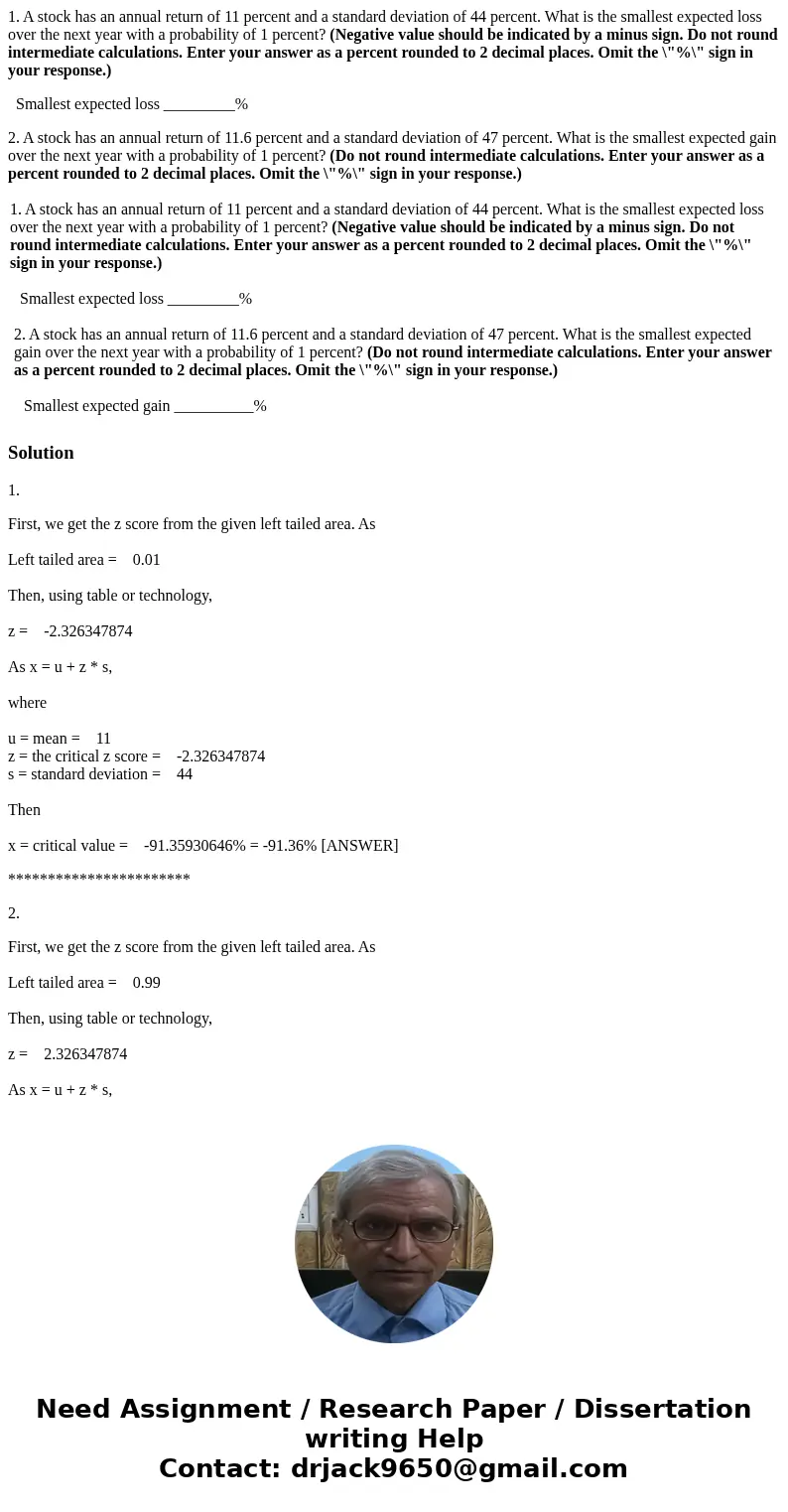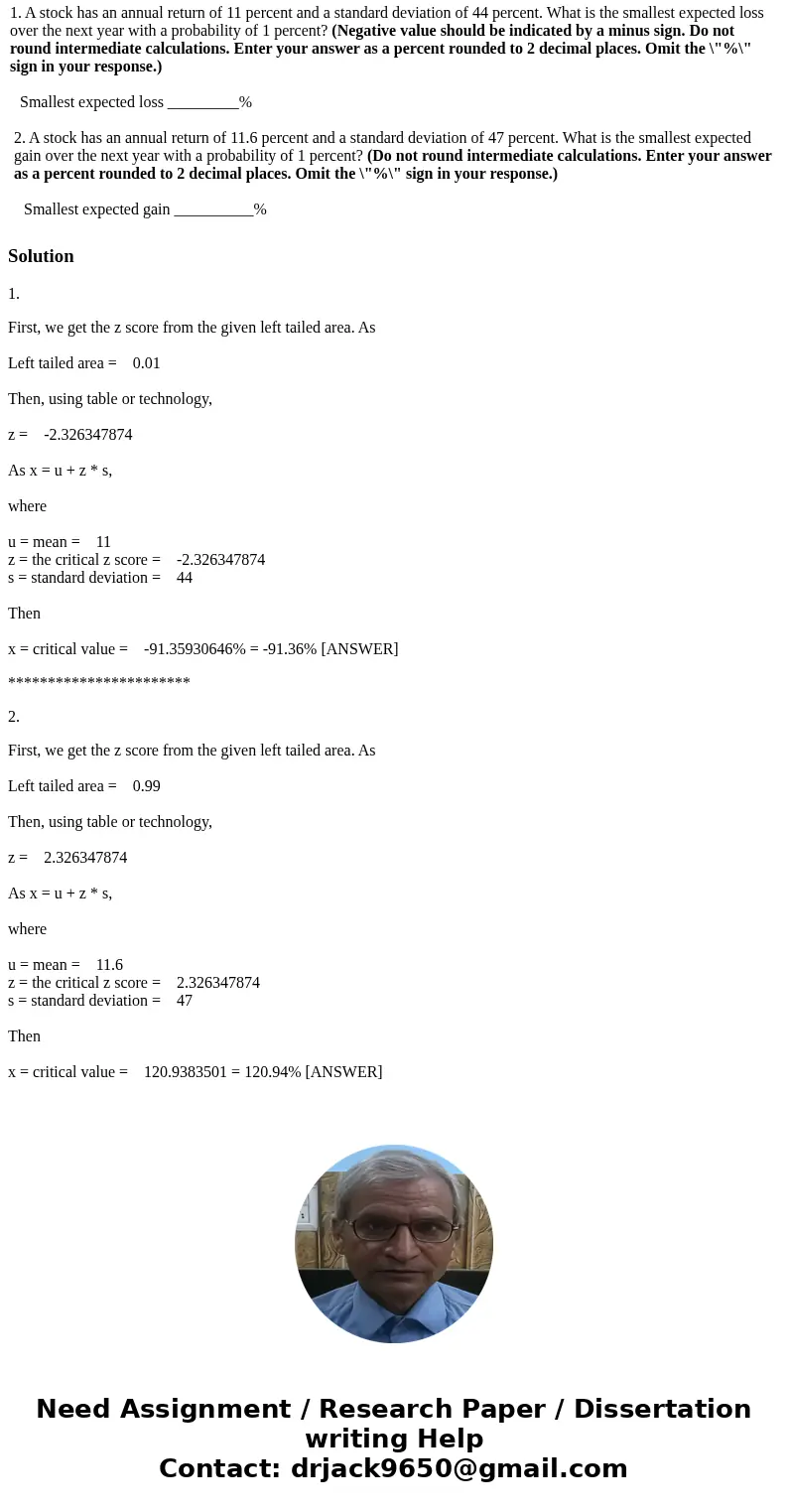1 A stock has an annual return of 11 percent and a standard
1. A stock has an annual return of 11 percent and a standard deviation of 44 percent. What is the smallest expected loss over the next year with a probability of 1 percent? (Negative value should be indicated by a minus sign. Do not round intermediate calculations. Enter your answer as a percent rounded to 2 decimal places. Omit the \"%\" sign in your response.)
Smallest expected loss _________%
2. A stock has an annual return of 11.6 percent and a standard deviation of 47 percent. What is the smallest expected gain over the next year with a probability of 1 percent? (Do not round intermediate calculations. Enter your answer as a percent rounded to 2 decimal places. Omit the \"%\" sign in your response.)
| 1. A stock has an annual return of 11 percent and a standard deviation of 44 percent. What is the smallest expected loss over the next year with a probability of 1 percent? (Negative value should be indicated by a minus sign. Do not round intermediate calculations. Enter your answer as a percent rounded to 2 decimal places. Omit the \"%\" sign in your response.)
|
Solution
1.
First, we get the z score from the given left tailed area. As
Left tailed area = 0.01
Then, using table or technology,
z = -2.326347874
As x = u + z * s,
where
u = mean = 11
z = the critical z score = -2.326347874
s = standard deviation = 44
Then
x = critical value = -91.35930646% = -91.36% [ANSWER]
***********************
2.
First, we get the z score from the given left tailed area. As
Left tailed area = 0.99
Then, using table or technology,
z = 2.326347874
As x = u + z * s,
where
u = mean = 11.6
z = the critical z score = 2.326347874
s = standard deviation = 47
Then
x = critical value = 120.9383501 = 120.94% [ANSWER]


 Homework Sourse
Homework Sourse